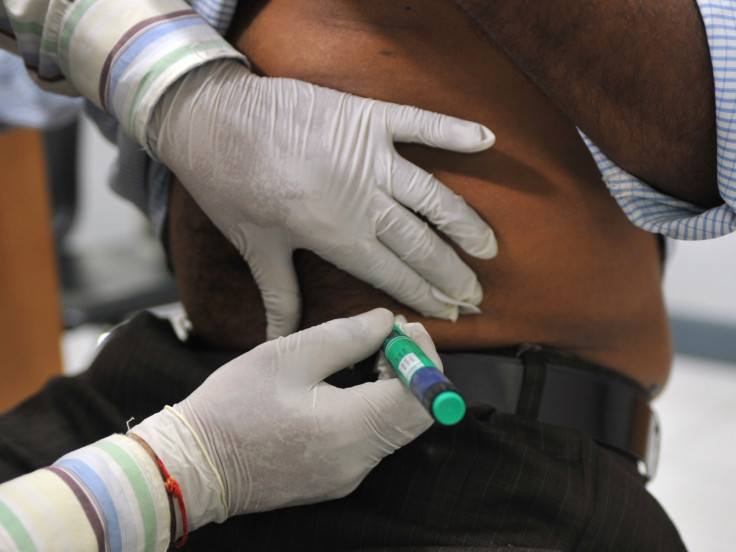World Diabetes Day 2014: 'Healthy Living' Theme Raises Awareness of Lifestyle Benefits

Today celebrates World Diabetes Day, a day of global awareness of the disease held annually. The theme for 2014 is Healthy Living and Diabetes – specifically focusing on how blood sugar levels can be controlled by eating a good breakfast.
It was set up in response to the rise of diabetes around the world, on the day marking the birthday of Frederick Banting, who along with Charles Best, first conceived the idea which led to the discovery of insulin in 1922.
Introduced in 1991 by the International Diabetes Federation and the World Health Organisation, the day is now an official United Nations day.
Last year, the international charity JDRF launched the Twitter campaign #TypeOnsie to raise awareness of type 1 diabetes.
What is diabetes?
Diabetes is a lifelong condition that causes a person's blood sugar level to become too high. Although diabetes is a group of metabolic diseases, there are two main types – type 1 and type 2.
High blood sugar causes frequent urination, thirst and hunger. Untreated, it can cause severe complications such as heart disease, stroke, kidney failure and damage to the eyes.
It is caused by either the pancreas not producing enough insulin, or the cells of the body not responding properly to the insulin provided.
Insulin, a hormone created in the pancreas, helps the body use glucose for energy.
How many people are affected?
In 2010, there was an estimated 3.1 million people aged 16 or over with diabetes in the United Kingdom, both diagnosed and undiagnosed.
According to the Centers for Disease Control and Prevention's National Diabetes Statistics Report in 2014, 29.1 million people or 9.3 percent of the US population had the condition.
Globally, as of 2013, there are an estimated 382 million people with diabetes worldwide, with type 2 diabetes making up about 90 percent of the cases.
What is the difference between the two types of diabetes?
In type 1 diabetes, the body's immune system attacks and destroys the cells that produce insulin. This leads glucose levels to increase, damaging the body's organs. It is known as insulin-dependent diabetes and often develops before the age of 40.
Type 2 diabetes is where the body fails to produce enough insulin, or the body's cells do not react to insulin. Often associated with obesity, it is a progressive condition and is normally treated using tablets.
Can lifestyle changes affect diabetes?
Being active and eating a balanced diet of fruit, vegetables, starchy foods, non-dairy sources of protein and dairy can be beneficial to controlling and preventing both type 1 and type 2 diabetes.
According to Diabetes UK, however, the same eating pattern is recommended for everyone – trying to eat foods low in salt, fat and sugar.
Lifestyle changes are often advised for those with a high risk of diabetes and who have been recently diagnosed with type 2. Recommendations include taking two-and-a-half hours each week of moderate physical activity, while losing weight to achieve a healthy body mass index.
© Copyright IBTimes 2025. All rights reserved.





















